Babies FAQ
From what age can a baby take Lacteeze?
Babies can take Lacteeze safely from birth onwards. Premature babies are often born with an immature digestive system causing a shortage of lactase digestive enzymes. So it’s reassuring to know Lacteeze can safely help all babies digest their feeds.
How soon will I see an improvement in my baby's symptoms?
Many parents notice an improvement in their baby’s symptoms from the first time they try Lacteeze. However, it is common for the baby to be suffering with lactose overload resulting in excess lactic acid and gas in their system that can take a week or slightly more to dissipate. The full effects of taking Lacteeze may not be seen until after this occurs.
Is there any credible evidence that shows that lactase enzyme supplements work for reducing colic?
Yes, over the last 30 years, there has been significant research and clinical studies into the effectiveness of lactase enzyme supplements for babies whose colic is associated with transient lactose intolerance. We have put together a number of research papers and clinical trials for you if you would like to read some of them.
How long will my baby need Lacteeze for?
Most babies start producing sufficient quantities of lactase enzymes to digest their feeds at around 3-4 months of age. You can test whether the baby’s system has matured sufficiently by gradually reducing the number of drops of Lacteeze you use per feed. If the baby’s symptoms return simply increase the dose of Lacteeze and try again later.
Can I place the drops directly in the baby’s mouth?
Lacteeze Infant drops are safe from birth. Lacteeze drops are designed to convert the lactose in liquid dairy externally, prior to consumption. If you place the drops directly in babies mouth, they won’t cause harm to your baby, although the enzymes in the drops would be damaged by the pH levels in the mouth and stomach so they would be less effective.
Can you use Lacteeze with soy formula or lactose-free formula?
Soy formulas and lactose-free formulas do not contain lactose, so there would be no benefit in using Lacteeze.
Does Lacteeze help with goat milk-based infant formula?
Yes. As goats milk formula contains lactose, Lacteeze can be used to reduce the level of lactose in each feed. Use the standard infant formula dosage.
Will it help if I give up dairy products while I am breastfeeding?
Contrary to popular belief giving up dairy when you’re breastfeeding will not affect the level of lactose in the breastmilk, which is naturally high in lactose. Giving up dairy is recommended when the baby has a sensitivity to cows’ milk protein, but not for lactose intolerance. The symptoms of cow milk protein allergies and lactose intolerance are similar, although there are usually a few telltale differences, for example, babies with cow milk protein allergies will often have skin conditions such as eczema or hives. You can read more about dairy allergies here.
Nursing mothers require a healthy, balanced diet that includes plenty of calcium. If you are considering removing dairy from your diet, we recommend you consult your healthcare practitioner first.
I've just found out my baby is lactose intolerant. I've previously expressed and frozen some breastmilk. Am I still able to convert the lactose using the drops?
Absolutely! When you’re ready to use one of your stores of frozen expressed milk take it out of the freezer and let it defrost in the fridge. Once it has reverted to a liquid you can add the drops. Shake it well and then allow at least 6 hours for the conversion to take place. The longer you leave the mixture the more lactose will be converted so you can certainly leave it up to 24 hours. When you’re ready to use it warm as usual and give to baby. Discard any unused breastmilk.
I am confused as to whether my baby suffers from colic or lactose intolerance. The symptoms are so similar…
The diagnosis of colic is actually based on a collection of symptoms, such as crying for no obvious reason for more than 3 hours at a time more than 3 days a week. It does not describe the actual cause of the symptoms, of which there may be many. Colic associated with lactose intolerance occurs when a lack of digestive lactase enzymes actually causes the colic symptoms. Studies show that approximately 40% of babies medically diagnosed with colic actually suffer from transient lactose intolerance. Terminology that describes this well is “colic associated with lactose intolerance”.
As Lacteeze is proven to reduce a baby’s symptoms of lactose intolerance, we recommend trialling Lacteeze if a baby shows symptoms of excess gas, bloating, abdominal discomfort, excess crying, or diarrhoea with green and frothy stools.



